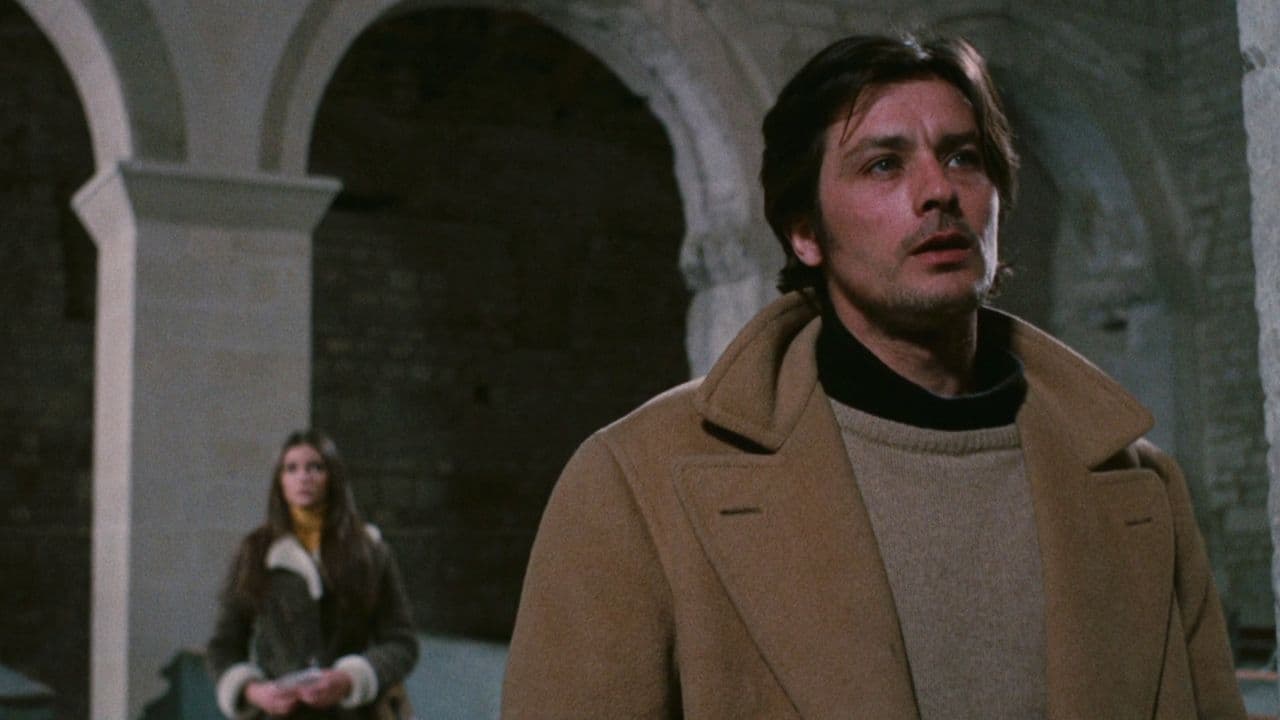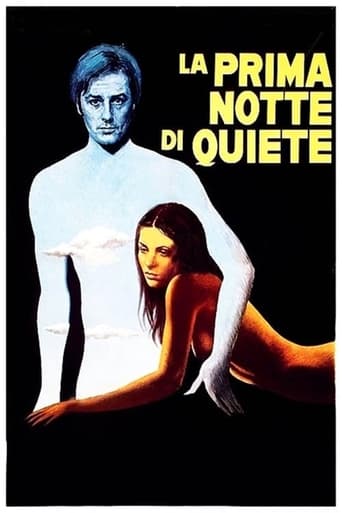



A different way of telling a story
This is a must-see and one of the best documentaries - and films - of this year.
View MoreIf you're interested in the topic at hand, you should just watch it and judge yourself because the reviews have gone very biased by people that didn't even watch it and just hate (or love) the creator. I liked it, it was well written, narrated, and directed and it was about a topic that interests me.
View MoreThere is, somehow, an interesting story here, as well as some good acting. There are also some good scenes
View MoreValerio Zurlini is not a household name but he is a director I love, Here he has the great Enrico Medioli as his writing partner and Alain Delon as his leading man. Cold, arid, fascinating tale. From Delon's substitute professor to Sonia Petrova's beautiful student nobody ever smiles, or very rarely. The wonderful Giancarlo Giannini is the one that brings the color and the joy and Alida Valli provide us with one hell of a scene. Rimini is also a character, a cold Rimini, out of business and an air of Fellini's I Vitelloni in the air. Very rewarding in its desolation.
View MoreIn Italy, the gambler and professor of poetry Daniele Dominici (Alain Delon) arrives in the seaside town of Rimini and is hired to teach for four months in the Liceu replacing another teacher. His relationship with his mate Monica (Lea Massari) is in crisis and he spends most of the time with his new acquaintances and gamblers Giorgio Mosca (Giancarlo Giannini), Marcello (Renato Salvatori) and Gerardo Pavani (Adalberto Maria Merli). In classroom, he meets the gorgeous nineteen years old mysterious student Vanina Abati (Sonia Petrova), who is Gerardo's girlfriend, and he feels a great attraction for her. They meet and know each other outside class, and they fall in love for each other. Their relationship leads to a tragic end."La Prima Notte di Quiete" is a cold, melancholic, cruel and tragic story, with magnificent performance of Alain Delon, perfectly developing the character of a desperate atheist man in existentialistic crisis. The beautiful cinematography and the music score are cold, as the environment of Rimini, Sonia Petrova is one of the most gorgeous actresses I have ever seen and is also perfect in the role of an young woman with a hidden past. The personal dramas are disclosed and developed in a slow pace and are very sad. Unfortunately there is no other movie available on VHS or DVD in Brazil of this great Italian director Valerio Zurlini, who seems to have been forgotten by our national distributors. My vote is eight.Title (Brazil): "A Primeira Noite de Tranquilidade" ("The First Night of Tranquility")
View MoreFor the record, I believe that Violent Summer (Estate Violenta) is at or near the level of Family Diary (Cronaca Familiare), and features his most extraordinary scene, an unbelievable dance sequence where Jean-Louis Trintignant and his newfound love, Eleonora Rossi Drago, dance with other partners, eyes glued to each other, while the music of `Temptation' plays, only to end up in each other's arms.*****SPOILER ALERT*****SPOILER ALERT*****I missed the viewing of Le Soldatesse, but The Desert of the Tartars (Il Deserto dei Tartari) was also a unique, remarkable, and powerful film. Perhaps after those films, The Professor (La Prima Notte Di Quiete) is another stunning film, not the least of which is how little time this particular professor, Daniele, Alain Delon, actually spends in class, instead he is a drinker, a gambler, a womanizer, and a bon vivant in the provincial town of Rimini. The party sequences in this film are quite extended, and feature the Zurlini theme of dancers staring daggers at others, NOT their dance partners. He has a long standing love affair with Monica, Lea Massari, who describes the strength of their relationship in terms of their `despair,' an incredibly astute remark, suggesting his newfound flame, the stunningly beautiful Vanina, Sonia Petrova, is a young, unrealistic expectation, as Daniele is really not capable of love, he is instead a tormented soul, and to prove it, she suggests she will commit suicide if he leaves her. So, of course, he walks out on her in an instant only to have second thoughts on route to his new love, perhaps realizing that he really only loves Monica, but dreams of the passions of Vanina, and in his internal torment, makes a crucial, careless, and reckless mistake that costs him his life, he gambles and loses. At his funeral, Zurlini reveals one of his most frequent images, Daniele's casket is surrounded by statues, living people who have the appearance of statues, dead souls that he has spent his life rejecting in a vain attempt to discover his own life, but the dead souls prevail in the end - cold, hard, slabs of rock, lifeless, inanimate objects that are permanently in a state of frozen disuse, another visually exquisite film that searches for the internal obsessions and motivations of it's characters.Robert
View MoreThis is forgotten Italian master Valerio Zurlini's third best film after "Family Diary" and "Le Soldattese." It features one of Alain Delon's very best performances and an equally good supporting one from Giancarlo Giannini. Delon plays a hard-drinking and gambling professor of poetry who is fascinated by the sullenness of a beautiful student(Sonia Petrovna) and gradually falls in love with her. He finds out through his gambling buddies that she is involved in a pornography-prostitution operation of some kind. Zurlini's great film uses a slightly over-the-top melodramatic style to delve deep into the existentialist despair of Delon's character as he hangs around the discos of a very liberal and swinging early '70s post-sexual-revolution Italy, depressed by all the empty people around him desperately trying to distract themselves any way they can. The underlying Antonioni-like theme of people trying to distract themselves and merge into a crowd rather than individuate and painfully grow is very similar to that of "Desert of the Tartars," a film that couldn't be more different than "The Professor" on the surface. Dario Di Palma's deep-focus color cinematography in this film is one of the most breathtakingly gorgeous displays of virtuosity this side of Carlo Di Palma's soft-focus work in Antonioni's "Red Desert."
View More